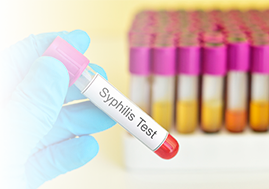
Get Tested. Get Treated.
Get Tested.
STDs and HIV don’t always have symptoms, but can cause serious complications. The only way to know if you or a partner has an STD or HIV is to get tested. See below to find a testing site near you for little to no cost. Not sure which tests you need? Click here for general testing recommendations
Also, be sure to finish all of your medicine, even if you feel better before you finish it all. You and your partner should avoid having sex until you’ve both been treated. Otherwise, you may continue to pass the STD back and forth. It is possible to get an STD again (after you’ve been treated), if you have sex with someone who has an STD.

Find in-person STD testing
sites near you
Get Treated.
Most STDs can be treated with the right dose of the right antibiotics. Some STDs cannot be completely cured, but you can take medication to help with symptoms and reduce your chance of transmission. Talk with your healthcare provider about treatment options and share your results with your partner(s).
Gonorrhea and Chlamydia Treatment
If you’ve just found out you have gonorrhea or chlamydia, Click here for next steps. Your provider may be able to give you medications for your partner as well. This is called Expedited Partner Therapy, or EPT.
Syphilis Treatment
Syphilis can be treated with the correct antibiotics. The earlier you find out you have syphilis the better. Treatment may not undo any damage that the infection has already caused. Visit our syphilis page for more information.
HIV Treatment as Prevention
A person living with HIV who is on antiretroviral therapy (ART) and has an undetectable viral load for 6 months cannot transmit HIV sexually to their partner. Learn more .
Updated September 30, 2024, 11:29 AM
